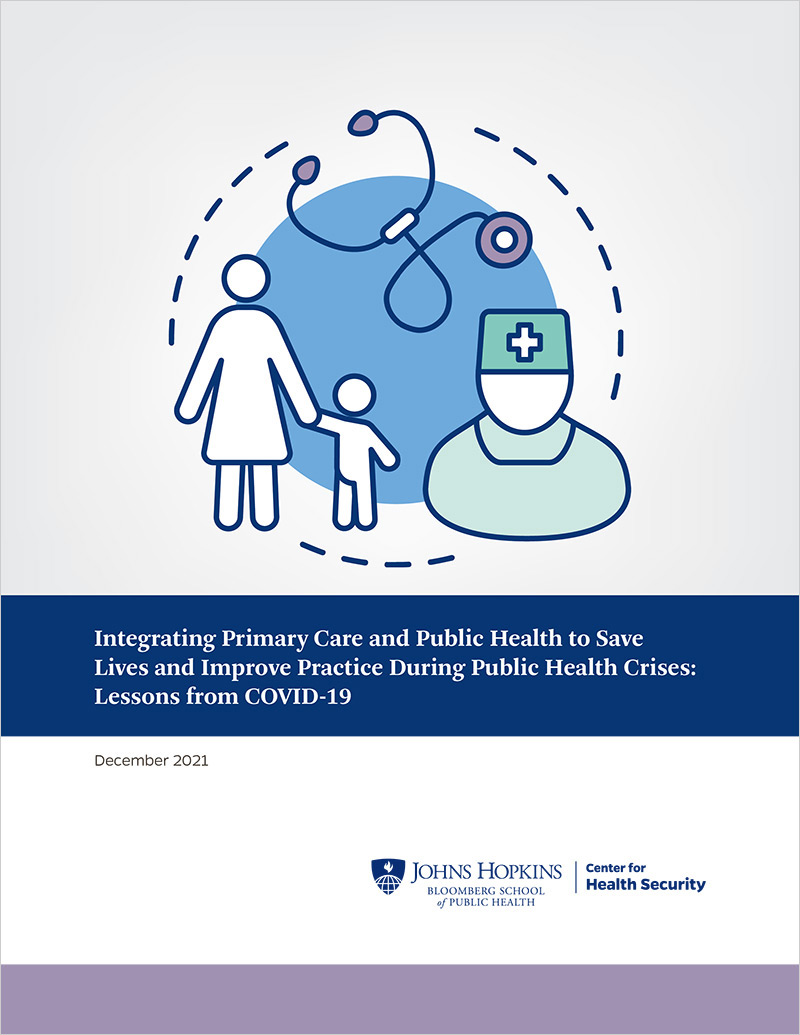New Report: Integrating Primary Care and Public Health to Save Lives and Improve Practice During Public Health Crises: Lessons from COVID-19
Center News

December 14, 2021 – Today, the Johns Hopkins Center for Health Security at the Bloomberg School of Public Health released a new report finding that the failure to bring primary care providers into a frontline role as responders to the COVID-19 pandemic, alongside the public health system, resulted in many missed opportunities to provide better quality care, faster testing, more effective contact tracing, greater acceptance of vaccination, and better communication with patients.
The new report, Integrating Primary Care and Public Health to Save Lives and Improve Practice During Public Health Crises: Lessons from COVID-19, also identified other unrealized benefits that could have helped, had there been better integration of primary care, public health, and community-based organizations: 1) Greater support for the public health response, thereby easing the burden on overstretched public health personnel; and 2) ability to access primary care’s reach to amplify public health messaging.
“If these coordinated activities had been effectively implemented, they could have saved lives and reduced the health, economic, and societal impact of the pandemic in the United States,” the authors write. “The COVID-19 pandemic must be a catalyst for change, and now may be an opportune time to encourage better alignment and collaboration for primary care with public health.”
Looking ahead, to address barriers that exist between primary care and public health and to correct misalignment across these systems, the report makes the following key recommendations:
- Federal and state agencies responsible for public health and primary care should audit their existing policies and funding mechanisms and realign them to support primary care and public health integration and enhance the functionality of both systems.
- Co-locate primary care and public health services to benefit population-level health and facilitate active collaboration.
- Primary care societies must align their efforts with public health in a unified voice to drive congressional action to ensure the disastrous response to the COVID-19 pandemic is not repeated.
- Craft efforts to support, protect, and sustain the primary care and public health workforces to drive integration across disciplines.
- Public health “moves at the speed of trust” and people trust their primary care providers and community-based organizations; therefore, primary care and public health partnerships with strong ties to their community organizations should enhance health systems surge capacity, extend public health disease containment interventions, and position the United States for improved response to future pandemic.
You can access the new report here.
